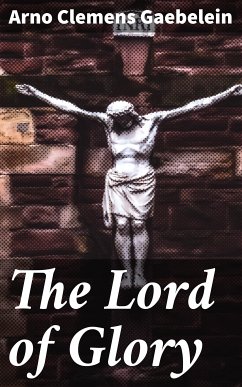In "The Lord of Glory," Arno Clemens Gaebelein presents an intricate theological exploration of Jesus Christ'Äôs divine nature and His manifold roles throughout Scripture. The book merges rigorous biblical exegesis with a devotional style, offering readers a nuanced understanding of Christ as both Lord and Savior. Gaebelein'Äôs methodical approach is complemented by a rich tapestry of scriptural references, drawing on the historical context of early 20th-century American evangelicalism, and reflecting the theological debates of his time, particularly concerning the deity of Christ and His relation to humanity. Arno Clemens Gaebelein was a prominent Christian leader and biblical scholar whose life was marked by a fervent commitment to the study of Scripture and the promotion of premillennial dispensationalism. His experiences as a pastor and evangelist, along with his exposure to various theological trends, informed his writings, allowing him to address crucial doctrinal questions and engage contemporary cultural issues. Gaebelein'Äôs passion for conveying the glory of Christ resonates throughout this text, as he seeks to illuminate the reader's understanding of Jesus'Äô supremacy. This book is highly recommended for theologians, clergy, and lay readers alike, who are eager to deepen their appreciation for the person and work of Christ. "The Lord of Glory" serves not only as a theological resource but as a source of inspiration that invites readers to contemplate the profound implications of Christ'Äôs lordship in their lives.
Dieser Download kann aus rechtlichen Gründen nur mit Rechnungsadresse in A, B, BG, CY, CZ, D, DK, EW, FIN, F, GR, H, IRL, I, LT, L, LR, M, NL, PL, P, R, S, SLO, SK ausgeliefert werden.









